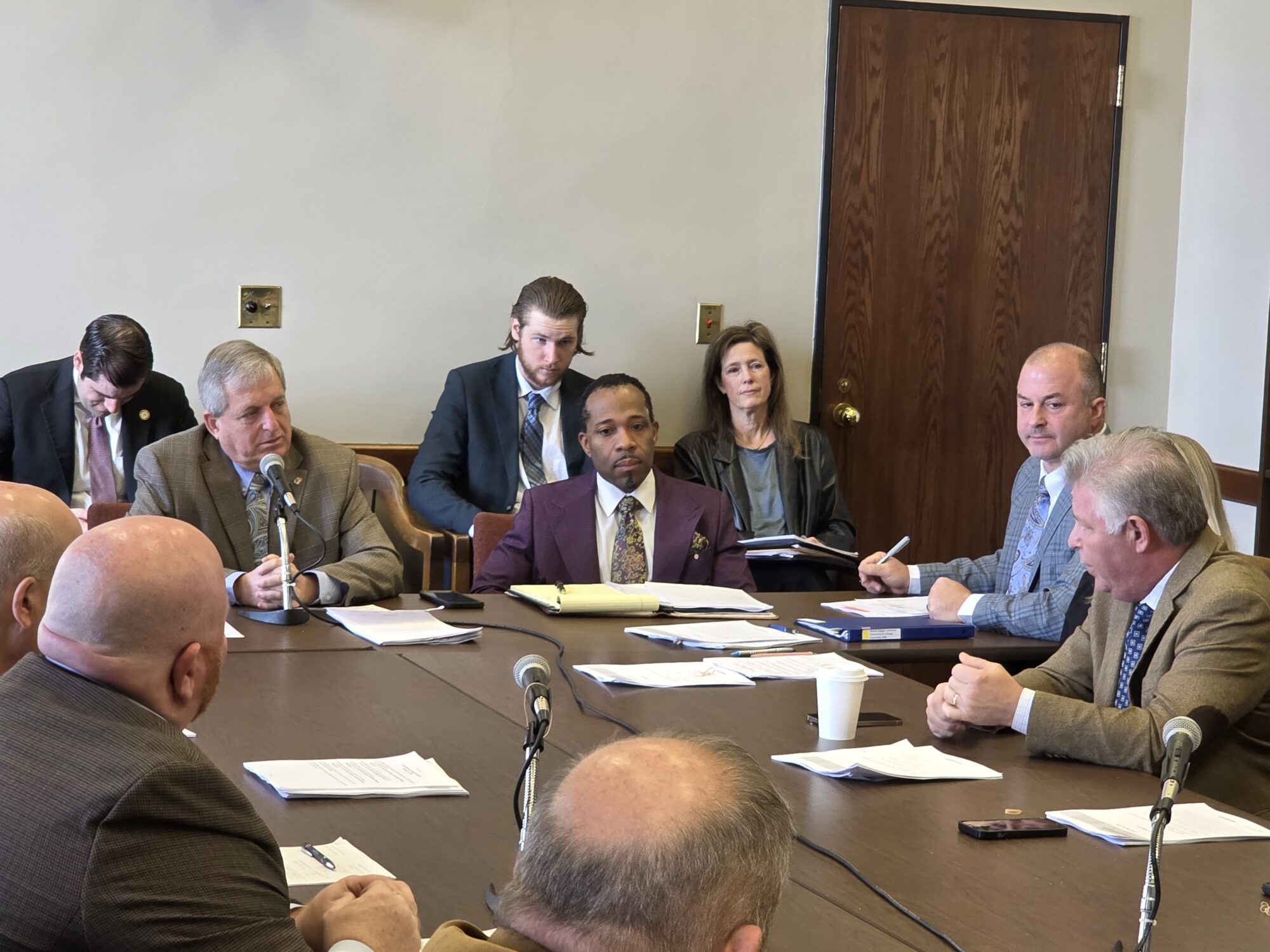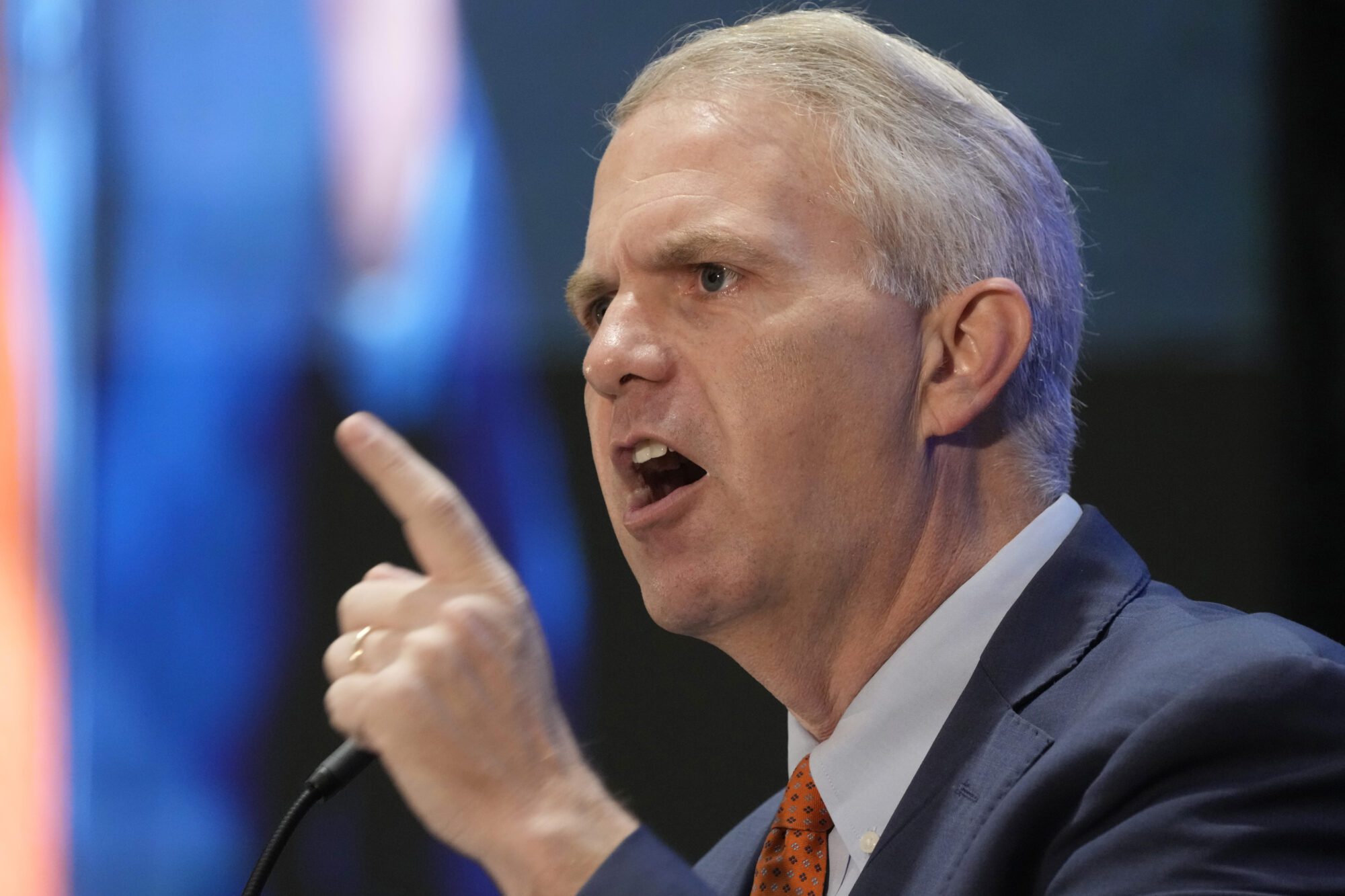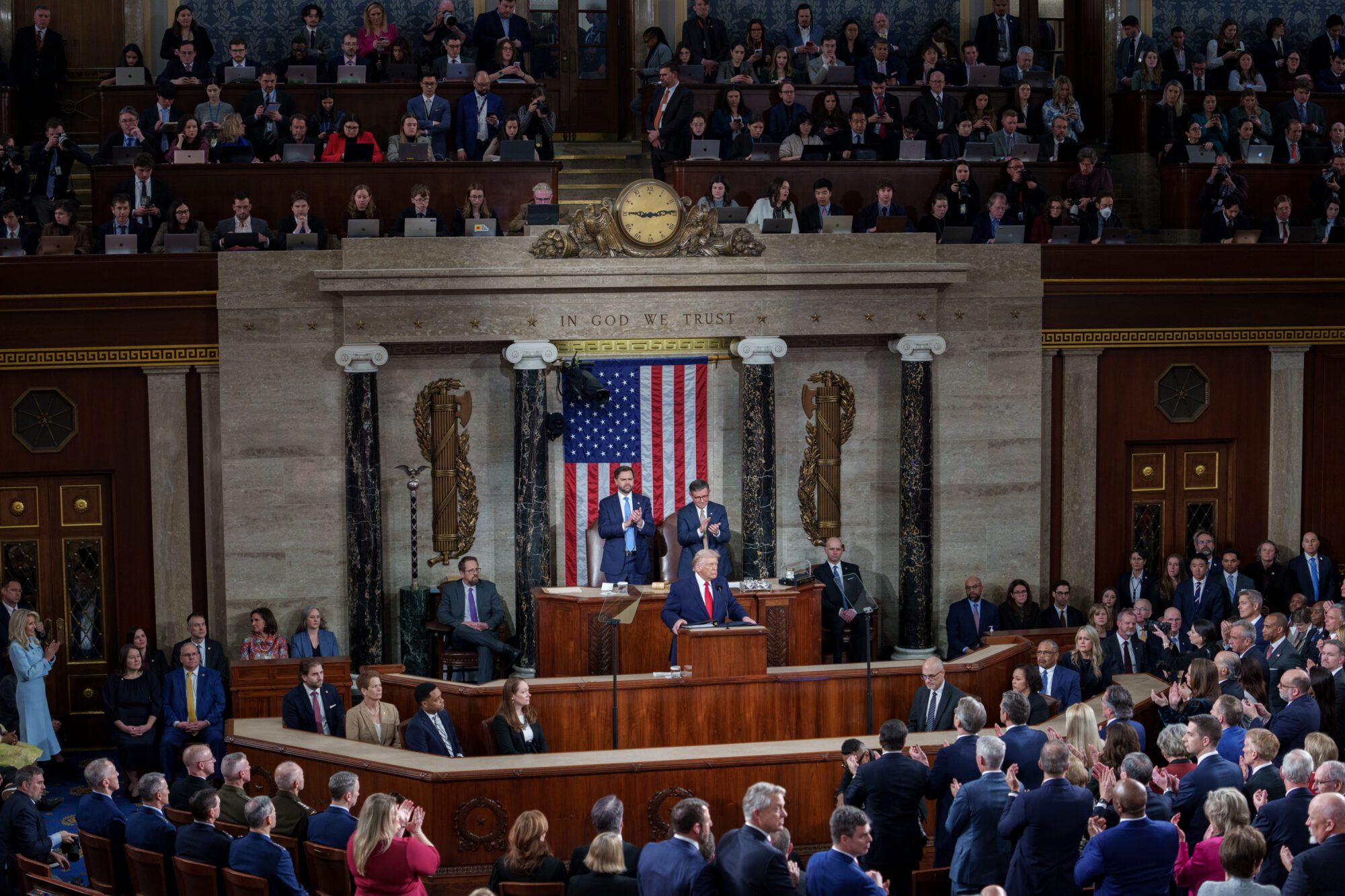
FILE- Light illuminates part of the Supreme Court building on Capitol Hill in Washington, Nov. 16, 2022. (AP Photo/Patrick Semansky, File)
During last night’s debate both incumbent Governor Tate Reeves and his Democratic challenger, Brandon Presley, reiterated that they are staunchly pro-life.
When the topic of abortion came up during the gubernatorial debate on Wednesday, Governor Tate Reeves raised questions about the depth of Democratic nominee Brandon Presley’s commitment to life. Reeves pointed to a $55,000 campaign contribution to Presley by Karla Jurvetson, the California Vice Chair of an abortion advocacy organization called Emily’s List.
The stated mission of Emily’s List is to “elect Democratic pro-choice women to office.” Its President is Mississippi native Laphonza Butler. She was recently appointed by California’s Democratic Governor Gavin Newsom to the U.S. Senate to fill the vacancy left by the death of Dianne Feinstein.
Presley pushed back on the idea that the gift meant anything about his personal beliefs on the issue of abortion.
“Anybody who donates money to me can hang it up if they think they can tell Brandon Presley what to do,” he said.
But the exchange was a reminder that the issue of abortion still looms both in and outside of Mississippi.
In many ways, Mississippi is ground zero for the debate.
In 2022, the state was at the center of a lawsuit that would ultimately change the way abortion laws are made across the country.
The Mississippi-centered Dobbs case led to overturning Roe v. Wade, which served as the nation’s precedent on abortion access since 1973. The ruling largely prevented states from placing restrictions on abortions.
The Dobbs lawsuit began as a challenge to House Bill 1510 which was passed by the Legislature and signed into law by former Governor Phil Bryant. The legislation prevented abortion in the state after 15-weeks’ gestation. Reeves presided over the Mississippi Senate as Lt. Governor at the time of the law’s passage.
After several lower court injunctions, the state petitioned the U.S. Supreme Court to hear the case.
The nation’s high court agreed and first heard arguments in the case on December 1, 2021. Mississippi’s position was argued by Scott Stewart, the State Solicitor General within the Attorney General’s Office.
Nearly a month prior to the release of the official SCOTUS ruling, a leaked draft was made public by Politico. It revealed that by a 6-3 vote, the Court would end the long-held Roe v. Wade statute and ultimately return the decision on abortion access back to the states.
When the official ruling came out in June 2022, it prompted several states to implement their own abortion access policies. Mississippi Code Section 41-41-45 was certified by the Attorney General on June 27, 2022. It outlines the state’s stance on abortion.
The provision bans all abortions in the state with two exceptions: to save the life of the mother or in cases of rape or incest that have been reported to law enforcement.
“The Dobbs opinion stands for the principle that decisions about how we regulate abortion should be made by the people through their elected leaders,” said Attorney General Lynn Fitch, whose office oversaw the case. “There is no question that the issues involved in abortion policy are complex, tough, and emotionally charged. But it is precisely because of such challenges that the Constitution gives the people the difficult task of balancing competing interests, devising compromises, and developing policy that reflects the will of the body politic.”
Fitch said when the Supreme Court originally decided Roe, it took abortion policymaking out of the hands of the people. Since that time, many states have attempted to craft laws that would satisfy the “special rules” abortion access was placed under while also promoting the interests of the people.
“Over and over again, those attempts were immediately quashed by the judiciary, which itself struggled time and again to make sense of the special rules of abortion jurisprudence. The world in which we live today barely resembles the world of 1973, yet states were unable to account for our changed experiences in our laws,” Fitch said.
With election day less than a week away, the state’s gubernatorial candidates have been questioned on this policy topic as well.
“Let’s be clear: this decision will directly result in more hearts beating, more strollers pushed, more report cards given, more little league games played, and more lives well lived. It is a joyous day! Tomorrow, we will wake to a new world, enthusiastically prepared to take on the challenges ahead and to take every step necessary to support mothers and children,” said Reeves after the Dobbs decision came out. “We must remember that our work is not yet over. The pro-life movement must dedicate itself to ensuring mothers and their babies receive the support they both need during pregnancy and after.”
In a July campaign ad, Presley described his views as pro-life based on his upbringing in which the Bible was a staple in his home.
How It Happened
While Mississippi lawmakers have attempted to create several laws that limit abortion access in the post Roe world, HB 1510 was the one that began the fight that would end Roe’s rule.
“We passed that bill despite knowing we might be sued. That did not deter us from continuing to fight the good fight because there is nothing more important than saving the lives of the unborn,” said Speaker of the House Philip Gunn, who held the position during the time of passage.
Prior to HB 1510’s passage no less than 4 other legislative efforts were made in the last decade to restrict abortion access in either the House or Senate.
In the Mississippi House of Representative, current Commissioner of Agriculture and Commerce and former Representative Andy Gipson made a strong push for HB 1510 in 2018. Gunn said when Gipson, Chair of Judiciary B, approached him about moving the bill forward, the Republican Caucus showed support.
“Little did we know that would be the bill used to change Roe v. Wade,” said Gunn. “I think it’s a testimony of never growing weary of doing good.”
Gunn said that the decision by SCOTUS did not “overturn” it but gave the state’s the option of determining their own laws around the issue. He reiterated that Mississippi’s position is that life begins at conception.
After being signed into law, the bill was then challenged in court by Jackson Women’s Health Organization lead by one of the clinic’s doctors, Sacheen Carr-Ellis. The suit called into question the constitutionality of a 15-week abortion ban. The facility served as the state’s only abortion clinic and was located in Jackson. It was only performing abortions up until 16-weeks’ gestation at the time.
Southern District Judge Carlton Reeves was the first to hear arguments in the case and moved to put an injunction on the state in implementing the law. At the time, he said there was “no legitimate state interest strong enough, prior to viability, to justify a ban on abortions.”
Appeals were filed and the Fifth Circuit Court upheld the injunction. The state then decided to petition the U.S. Supreme Court to hear the case. Mississippi’s premise was ultimately that the right to determine when, and if abortions take place in a state, should be left up to the state.
In Justice Samuel Alito’s opinion he noted that for the first 185 years of the country’s beginning, states were permitted to address the issue of abortion in accordance with the views of its citizens. Another pivotal abortion case that followed Roe, Planned Parenthood of Southeaster PA v. Casey, was also addressed in the Dobbs decision.
“We hold that Roe and Casey must be overruled. The Constitution makes no reference to abortion, and no such right is implicitly protected by any constitutional provision, including the one on which the defenders of Roe and Casey now chiefly rely—the Due Process Clause of the Fourteenth Amendment. That provision has been held to guarantee some rights that are not mentioned in the Constitution, but any such right must be “deeply rooted in this Nation’s history and tradition” and “implicit in the concept of ordered liberty,” wrote Alito.
As of now, 14 states have complete abortion bans, with others limiting abortions up to 18 weeks. Another 25 states still allow abortions, with several that have no gestational limit, according to the New York Times.











